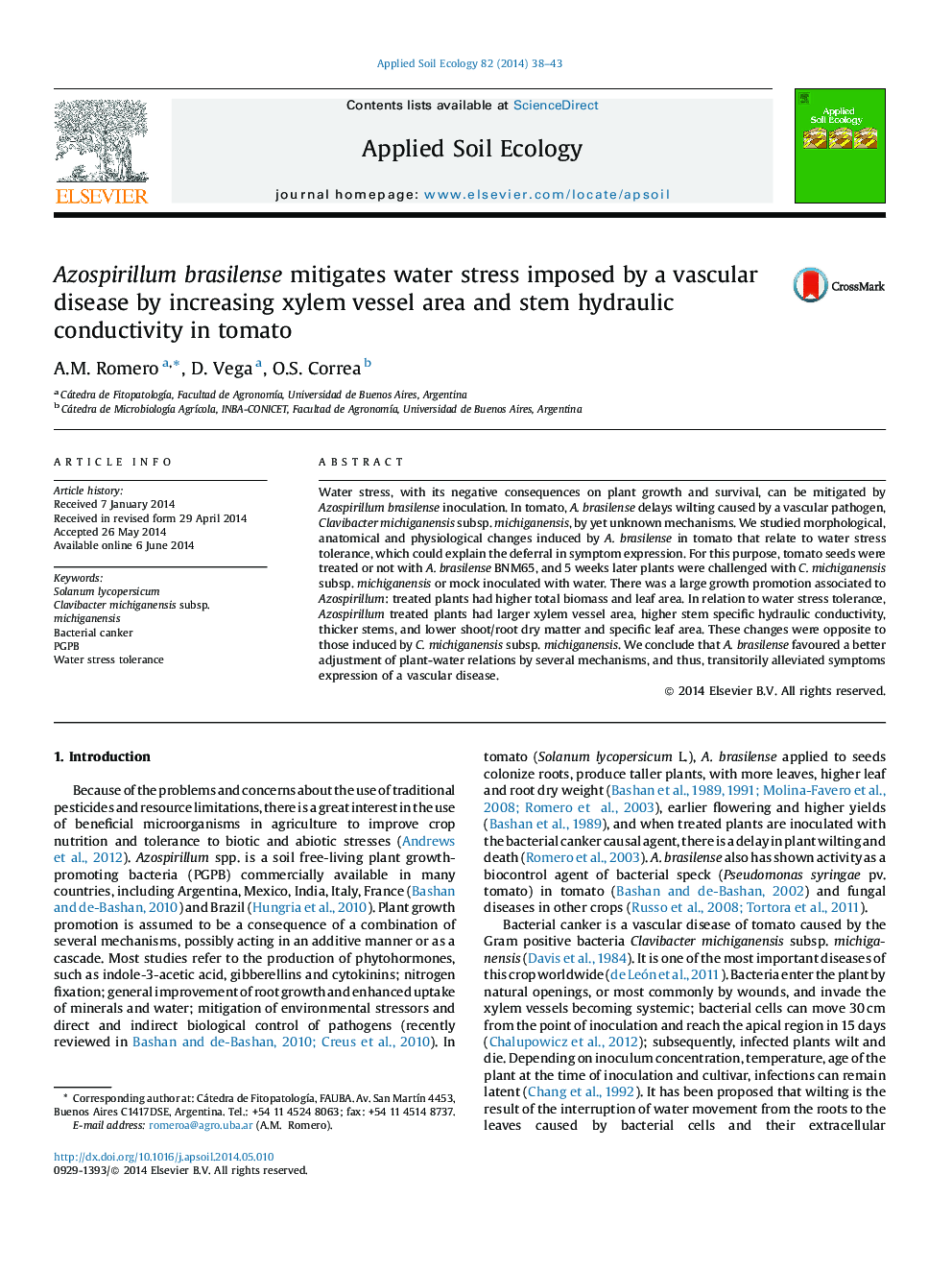| Article ID | Journal | Published Year | Pages | File Type |
|---|---|---|---|---|
| 4382148 | Applied Soil Ecology | 2014 | 6 Pages |
•Azospirillum positively affects tomato growth improving water stress tolerance.•Azospirillum favours a better plant-water relationship adjustment in tomato.•Azospirillum increases xylem vessel area and stem conductivity on tomato plants.•A better plant-water relationship reduces symptoms of bacterial canker in tomato.•Positive effects of Azospirillum on tomato bacterial canker are transient.
Water stress, with its negative consequences on plant growth and survival, can be mitigated by Azospirillum brasilense inoculation. In tomato, A. brasilense delays wilting caused by a vascular pathogen, Clavibacter michiganensis subsp. michiganensis, by yet unknown mechanisms. We studied morphological, anatomical and physiological changes induced by A. brasilense in tomato that relate to water stress tolerance, which could explain the deferral in symptom expression. For this purpose, tomato seeds were treated or not with A. brasilense BNM65, and 5 weeks later plants were challenged with C. michiganensis subsp. michiganensis or mock inoculated with water. There was a large growth promotion associated to Azospirillum: treated plants had higher total biomass and leaf area. In relation to water stress tolerance, Azospirillum treated plants had larger xylem vessel area, higher stem specific hydraulic conductivity, thicker stems, and lower shoot/root dry matter and specific leaf area. These changes were opposite to those induced by C. michiganensis subsp. michiganensis. We conclude that A. brasilense favoured a better adjustment of plant-water relations by several mechanisms, and thus, transitorily alleviated symptoms expression of a vascular disease.
